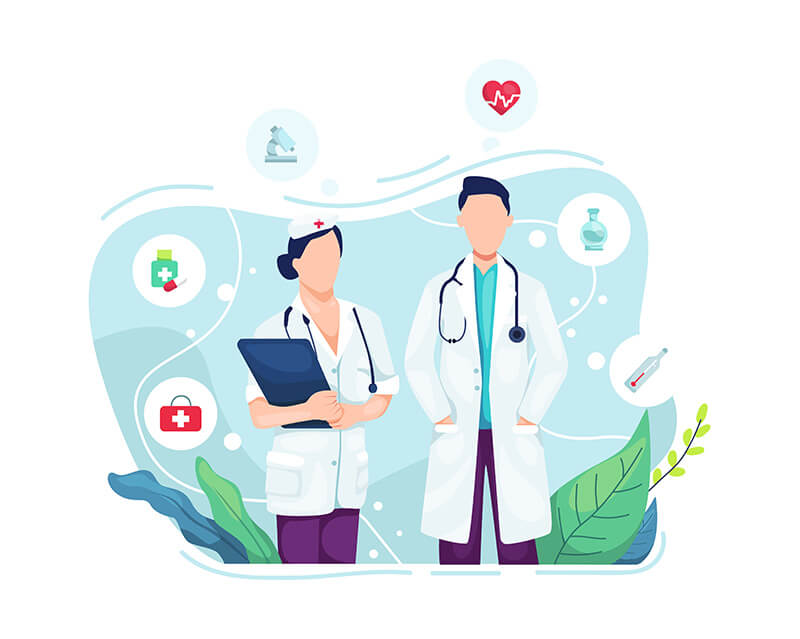
Substance abuse is a global crisis that affects millions of people from all walks of life. The impact of addiction is not limited to the individual; it ripples through families, communities, and society as a whole. However, amidst this darkness, there is a ray of hope - a deaddiction center. These centers play a pivotal role in battling substance abuse by providing individuals with the support, treatment, and guidance they need to overcome addiction. In this article, we will explore the critical role that deaddiction centers play in the fight against substance abuse.
- Providing a Safe and Supportive Environment:
One of the primary functions of deaddiction centers is to offer a safe and supportive environment for individuals struggling with substance abuse. This is crucial because addiction often leads people into a cycle of isolation and despair. By offering a secure and non-judgmental space, deaddiction centers create a foundation for recovery.
Individuals can find solace in knowing they are not alone in their journey and are surrounded by others who understand their struggles. This sense of community can be a powerful motivator and source of emotional support, helping individuals battle addiction.
- Detoxification and Medical Supervision:
Deaddiction centers provide medically supervised detoxification services to help individuals safely withdraw from drugs or alcohol. Detoxification is a critical step, as the withdrawal symptoms can be severe and even life-threatening. In deaddiction centers, individuals have access to medical professionals who can manage these symptoms and ensure a safe transition into the recovery process.
- Individualized Treatment Plans:
Each person's journey through addiction is unique, and deaddiction centers recognize this fact. They create individualized treatment plans tailored to the specific needs of each client. This personalized approach addresses not only the addiction itself but also any underlying mental health issues that may contribute to substance abuse. By targeting the root causes of addiction, deaddiction centers provide a comprehensive treatment approach that promotes long-term recovery.
- Behavioral Therapy and Counseling:
Therapy and counseling are integral components of the treatment process at deaddiction centers. These services aim to help individuals understand the psychological aspects of addiction, develop coping strategies, and build healthier behaviors. Cognitive-behavioral therapy (CBT), dialectical behavior therapy (DBT), and motivational enhancement therapy (MET) are just a few examples of evidence-based therapies used in these centers.
Counselors work closely with clients to identify triggers, manage stress, and develop strategies to avoid relapse. This therapeutic support helps individuals build the resilience and skills necessary to stay clean and lead fulfilling lives.
- Family Involvement:
Substance abuse affects not only the individual but also their families. Deaddiction centers often include family therapy and education programs. Involving family members in the treatment process can help repair relationships damaged by addiction and create a strong support system for the individual in recovery. It also educates family members on the dynamics of addiction, improving their ability to provide effective support.
- 24/7 Supervision and Monitoring:
Many deaddiction centers provide round-the-clock supervision and monitoring to ensure the safety and progress of their clients. This continuous oversight is especially important in the early stages of recovery when cravings and relapse risk are high. By keeping individuals in a structured environment, deaddiction centers reduce the opportunity for access to substances and provide immediate support if a crisis arises.
- Education and Relapse Prevention:
Education about addiction is a vital part of the recovery process. Deaddiction centers provide clients with information about the risks and consequences of substance abuse, helping them gain insight into their condition. Furthermore, these centers equip individuals with the tools and knowledge to prevent relapse once they leave the facility. This education is essential for ensuring that the skills learned in treatment continue to be applied in daily life.
- Holistic Approaches:
Many deaddiction centers embrace holistic approaches to recovery. These methods go beyond traditional therapies and include activities like yoga, meditation, art therapy, and mindfulness practices. Holistic approaches aim to heal the whole person, addressing not just the addiction but also mental, emotional, and spiritual well-being. These complementary therapies can provide valuable coping mechanisms and improve overall quality of life.
- Aftercare and Support Services:
Recovery from substance abuse is an ongoing process that extends beyond the duration of a stay in a deaddiction center. These centers typically offer aftercare and support services to help individuals transition back into their daily lives successfully. Aftercare can include ongoing therapy, support groups, and check-ins with counselors to monitor progress and address any challenges that may arise in the post-treatment phase.
- Reducing the Stigma of Addiction:
Deaddiction centers also contribute to battling substance abuse on a societal level. By providing compassionate care and support to individuals facing addiction, they play a crucial role in reducing the stigma associated with addiction. When people see that addiction is a treatable medical condition, it helps to break down barriers and encourages those struggling to seek help without fear of judgment.
Deaddiction centers are vital in the battle against substance abuse. They serve as beacons of hope for individuals trapped in the cycle of addiction, providing a path toward recovery. Through their comprehensive treatment, medical supervision, therapy, and support, deaddiction centers offer the tools and resources necessary for individuals to reclaim their lives and regain their independence. Moreover, these centers have a positive impact on society by reducing the stigma of addiction and fostering a more empathetic and understanding approach to this widespread issue. As the battle against substance abuse continues, deaddiction centers remain a crucial resource in the fight for a healthier and addiction-free world.

No comments yet